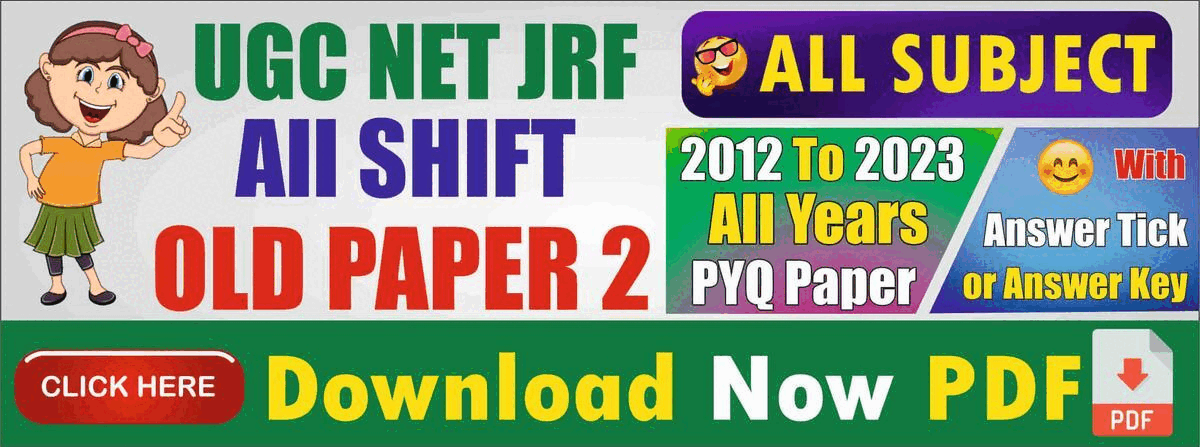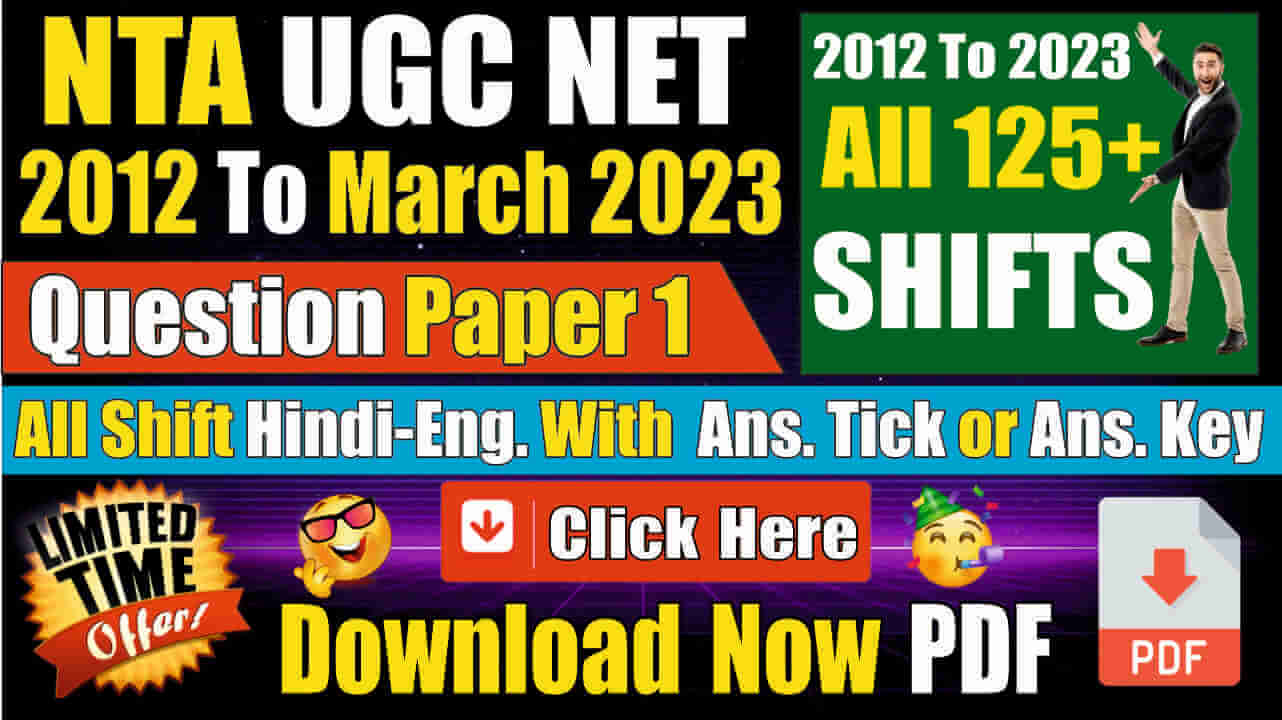Are you searching for the UGC NET Defence and Strategic Studies Syllabus 2023 PDF Download? Look no further, as we have compiled all the important details and tips to help you prepare for the exam.
The UGC NET Defence and Strategic Studies exam is conducted by the National Testing Agency (NTA) for candidates who wish to pursue a career in the field of Defence and Strategic Studies. The exam assesses the candidates’ knowledge in the subject and tests their eligibility for lectureship and research fellowships.
If you are planning to appear for the UGC NET Defence and Strategic Studies 2023 exam, it is important to have a thorough understanding of the syllabus and exam pattern. In this article, we have compiled all the important information you need to know about the UGC NET Defence and Strategic Studies Syllabus 2023 PDF Download
UGC NET Defence and Strategic Studies Exam Pattern 2023:
The UGC NET Defence and Strategic Studies exam consists of two papers – Paper 1 and Paper 2. Both papers are conducted on the same day, and the duration of each paper is 3 hours. The exam is conducted online, and each question carries 2 marks. There is no negative marking for incorrect answers.
The UGC NET Defence and Strategic Studies Exam consists of two papers: Paper 1 and Paper 2.
Paper 1:
- Duration: 3 hours
- Number of questions: 50
- Total marks: 100
- Type of questions: Multiple Choice Questions (MCQs) based on general aptitude, teaching and research aptitude, and current affairs.
Paper 2:
- Duration: 3 hours
- Number of questions: 100
- Total marks: 200
- Type of questions: MCQs based on Defence and Strategic Studies subjects.
Both papers are conducted in a single session with no break in between. The candidates are required to appear for both papers to be considered for the selection process.
It’s important to note that there is no negative marking for incorrect answers in UGC NET Defence and Strategic Studies Exam.
UGC NET Defence and Strategic Studies Syllabus 2023: Download PDF
The UGC NET Defence and Strategic Studies syllabus is divided into two parts – Paper 1 and Paper 2. Here’s a detailed syllabus for both papers.
Paper 1 Syllabus:
Teaching Aptitude:
- Teaching: Nature, objectives, characteristics, and basic requirements.
- Learner’s characteristics: Characteristics of adolescent and adult learners, and individual differences.
- Methods of teaching: Teacher-centered vs. learner-centered methods; Off-line vs. online methods.
- Evaluation systems: Elements and types of evaluation, evaluation in higher education, and grading system.
Research Aptitude:
- Research: Meaning, types, and characteristics.
- Steps of research.
- Methods of research.
- Research Ethics.
Reading Comprehension:
- Comprehension passages.
Communication:
- Communication: Nature, characteristics, types, barriers, and effective communication.
- Verbal and non-verbal communication.
- Classroom communication.
Logical Reasoning:
- Understanding the structure of arguments.
- Evaluating and distinguishing deductive and inductive reasoning.
- Verbal analogies.
Data Interpretation:
- Sources, acquisition, and interpretation of data.
- Quantitative and qualitative data.
- Graphical representation and mapping of data.
Paper 2 Syllabus:
Nta Ugc Net Defence and Strategic Studies Syllabus 2023 in English
Here you can check the latest UGC NET Syllabus For Defence and Strategic Studies Paper-II 2021 for English Medium.
Unit I: Theories And Concepts
- Defence and Strategic Studies : Assumptions and Approaches.
- The Concepts of Nation:
- State and Nation – State, Theories and Elements of State
- National Power and its Components
- Key Concepts of National Security: Defining National Security, National Defence and National Interest, National Character and Evolution-of the National Security concept in the 20th Century and Beyond.
- National Security Concerns of Major Powers, Middle Powers and Small Powers
- National Security Structures: Armed Forces, Intelligence Agencies, Police Forces, Decision-Making Structures, etc.
- National Security Environment: Internal and External
- Defence, Foreign, Security and Domestic Policies; Concept formulation, objectives and linkages.
- Military Alliances and Pacts, Peace Treaties, Defence Cooperation, Strategic Partnership and Security Dialogue.
- Non – Alignment, Balance of Power, Collective Security and Balance of Terror – Concept, Development and Relevance.
- Deterrence and Détente: Concept and contemporary relevance.
Unit II: Strategic Thought
- Contribution of Sun Tzu,
- Kautilya,
- Machiavelli,
- Jomini,
- Carl von Clausewitz, 6. General Giulio Douhet
- Mitchell,
- F.C.Fuller,
- B.H.Liddell Hart,
- Marx, Lenin, Mao Zedong and Che Guevara.
- Nuclear Deterrence: Andre Beaufre, Henry Kissinger and K. Subrahmanyam.
- Thoughts of Gandhi and Nehru on Peace, Security and Development.
Unit III: War As An Instrument In International Relations
- Theories and causes of War.
- Principles of War.
- Contemporary Warfare : Conventional Warfare in Nuclear age, Limited War, Revolutionary Warfare, Low Intensity Operations, Guerilla Warfare, Insurgency and Counter – Insurgency.
- Armaments : Arms Race, Arms Aid, Arms Trade, Arms Proliferation, Proliferation of Small Arms
- Military Alliances and Pacts, Peace Treaties, Defence Cooperation, Strategic Partnership and Security Dialogue.
- Terrorism : Concept and kinds (National, International and Cross border).
- Conflicting Ideologies : Militarism, Nationalism, Fundamentalism, Separatism, Irredentism.
- Concept and Elements of Deterrence: Nuclear & Conventional.
- Evolution of Global Nuclear Doctrines
- Democratic Peace Theory
Unit IV: WMD, Nuclear Proliferation And National Security
- Basic Concepts and Theory
- Concepts of Disarmament & Arms Control
- Objectives and Conditions of Disarmament
- Elements of Arms Control Mechanisms: Agreements, verification, inspection, control.
- Approaches to Disarmament & Arms Control
- Historical Survey of Disarmament Efforts:
- Under the League of Nations
- Under the United Nations
- Unilateral, Bilateral and Multilateral approaches
- Role of Non-aligned Nations in Disarmament Negotiations
- Weapons of Mass Destruction: Nuclear, Chemical & Biological Weapons.
- Nuclear Arms Limitation Nuclear Arms Control Treaties.
- Chemical weapons Convention and Biological Weapons Convention
- Concept of Non-proliferation, NPT, CTBT, PTBT MTCR FMCT, & other treaties
- Nuclear Export Control Regimes
- New Challenges and Responses – Missile Defense, Cooperative Threat Reduction and G-7 Global Partnership
- Disarmament & Arms Control and Economic Development
- Terrorism and Nuclear Proliferation.
- Concept of Star Wars and NMD
Unit V: Global Security Concerns
- End of cold war and emergence of new world order.
- Proliferation of Military, Nuclear and missile capabilities
- Environmental Issues : climate change and Global Warming, Desertification, Acid Rains, Industrial Pollution, Deforestation
- Organized Crimes : Money Laundering, Narco – trafficking , Human Trafficking and small arms proliferation.
- Migrants and Refugees:
- Causes
- Illegal migration and border management
- Problem in South Asia
- Role of International Committee of Red Cross and UN High Commission for Refugees.
- Global Security Concerns: Palestinian-Israeli conflict & Arab Spring, Developments in Central Asian Republics (CARs), Rise of Fundamentalism, Challenges in Korean Peninsula, Taiwan and Power Rivalry in South China Sea.
- Problem of System of Governance and Human Rights
- Food Security, Energy Security and Water Security problems in modern era.
- Millennium Development Goals.
Unit VI: India’s Security Concerns & Policies In Contemporary International Scenario
- Genesis of Sino-Indian Relations
- The Boundary Dispute, Sino- Pakistan Nexus, OBOR and CPEC, China and India- Military Balance, Chinese Policy towards South Asia
- Rise of India and China: Cooperation and Competition, Chinese Interests in Indian Ocean and South China Sea
- Strategic Dimension of India- Pakistan Relations: Genesis of India-Pakistan Conflict, Indo-Pak Military balance, The Kashmir Question, Pakistan Sponsored Terrorism, Pakistan’s Nuclear Strategy, The Powers Structure of Pakistan, Contentious. Issues: Siachin, Sir Creek, River Waters, etc.
- India and South Asia: Issues and Challenges for Regional Cooperation.
- Making of India’s Defence Policy since Independence:
- Threat perception, assessment and preparedness
- Political and military lessons of 1948, 1962, 1965, 1971, 1999 wars
- Future trends
- India’s Look East and Act East Policies, Indo- Pacific Cooperation, Strategic Partnerships.
- India’s maritime security and strategy in 21st century:
- Indian Ocean
- Asia-Pacific region
- Security of Sea Lanes, India’s Maritime Strategy for the 21st Century.
- India’s Defence Doctrines and Strategies including Nuclear Doctrine
- Higher Defence Organization of India.
Unit VII: Issues In Conflict Resolution
- Origin, Type and Structure of Conflict.
- Ideologies and International conflicts.
- Role of United Nations in Conflict Management and Re – Structuring of UNO
- Techniques of Conflict Prevention
- Conflict Management : Pacific Solutions of International Disputes, Coercive methods.
- International Humanitarian Laws and Laws of Armed Conflicts.
- Confidence Building Measures : Concept, kinds and utility.
- IGOs & NGOs in Conflict Resolution: Peace Making, Peace Keeping and Peace Building.
- Gandhian Philosophy on Peace and Non-violence
- Nehruvian approach to National Security and Cooperation
Unit VIII: Disaster Management And National Security
- Basic Concept & meaning of Disaster, Introduction to terminologies associated with Disaster and National Security: Natural and Manmade, Vulnerability, Risk etc., Identifying various types of Disasters.
- Natural Disaster and Human Induced Disaster: Floods, Cyclone, Earthquake, Tsunami – WMD Disaster – Disaster associated with various industries
- Study of Disaster in India / Around the World: Case Studies: Tsunami 2004, Bhopal Gas Tragedy, Chernobyl, Fukushima, Uttarakhand etc.
- Disaster Management : Meaning, Association and Distinction with related concepts like Disaster Mitigation, Response, and Recovery, Relief, and Reconstruction
- Institutional Mechanism for Disaster Management in India: Role of Armed Forces, Central and State Governments, NGO, National Disaster Management Authority, Indian National Centre for Ocean Information Services.
Unit IX: Defence Economics
- Economic Theories of Defence.
- Sustainable Development: Challenges & Responses.
- Basics of Defence Planning, Determinants of Defence Expenditure.
- Defence Budgeting.
- Economic Causes of War.
- Economic Warfare in modem times.
- Economic Problems of Post War reconstruction.
- National Security and International Trade regimes (WTO, TRIPS, TRIMS, FTA’s NAFTA, SAPTA, & NSG).
- India’s role in Regional and Global Economic Forums and Organizations.
- Geo-economics and its Implications for global/regional economic stability
Unit X: Science & Technology And National Security
- Broad Survey of Technological Changes from Industrial Revolution to Information Revolution.
- India’s Civil Nuclear and Space Programs, India’s Energy Scenario.
- Research and Development:
- Relevance of Science and Technology in National Security.
- Impact of Information Technology; Revolution in Military Affairs (RMA).
- Choice of Weapon Systems.
- Impact of Economic Liberalization and Globalization :
-
- Defence Production in India ( Role of DPSU’s and Ordnance factories ).
- Defence and Development and Peace & Development Dichotomies.
- Issues of Mobilization of Resources during War and Peace.
- Military Industrial Complexes.
- Transfer of Technology : Dual use and critical technologies and their impact on national security.
- Interdependence and Cooperation at Regional and Global levels.
- Cyber Security : Vulnerabilities of Information technology and internet, Need and importance of cyber security, Different kinds of cyber security vulnerabilities, Cyber wars including propaganda, measures for cyber security- Technology, laws and regulations, global issues in cyber security.
- Social Media and its Impact on National Security- Global reach with rapid speed for propaganda and indoctrinate misinformation and rumour mongering cadre recruitment and use of social networking sites for mobilizing public opinion.
Paper 2 Syllabus Download Pdf:
Ugc Net Defence and Strategic Studies Syllabus 2023 in English
Ugc Net Defence and Strategic Studies Syllabus 2023 in Hindi
Preparation Tips for UGC NET Defence and Strategic Studies Exam 2023:
Here are some tips for preparing for the UGC NET Defence and Strategic Studies exam 2023:
- Understand the syllabus and exam pattern thoroughly.
- Make a study plan
- Refer to standard textbooks and study materials recommended for the exam.
- Practice previous year question papers and mock tests.
- Focus on time management and accuracy while attempting the questions.
- Take regular breaks and maintain a healthy lifestyle to avoid burnout.
- Join coaching classes or online courses if necessary.
- Stay updated with current affairs related to the Defence and Strategic Studies field.
Important Points:
- The UGC NET Defence and Strategic Studies exam is conducted by NTA for candidates who wish to pursue a career in Defence and Strategic Studies.
- The exam assesses the candidates’ knowledge in the subject and tests their eligibility for lectureship and research fellowships.
- The exam pattern of UGC NET Defence and Strategic Studies 2023 includes multiple-choice questions and is conducted in online mode.
- The marking scheme of the exam is +2 for a correct answer and no negative marking for incorrect answers.
- The duration of the exam is 3 hours, and the number of questions is 150.
- The UGC NET Defence and Strategic Studies Syllabus 2023 PDF Download is an important document that provides a detailed outline of the topics that will be covered in the exam.
- To download the syllabus, candidates can visit the official website of NTA and click on the link provided.
- The syllabus is available in PDF format and can be downloaded for free.
- The syllabus is divided into nine units, each covering a specific topic related to Defence and Strategic Studies.
- To prepare for the exam, candidates must understand the syllabus, make a study plan, practice previous year question papers, join a coaching institute, take mock tests, and revise regularly.
FAQs:
- Is there any negative marking in the UGC NET Defence and Strategic Studies exam 2023? Ans: No, there is no negative marking for incorrect answers.
- Can I download the UGC NET Defence and Strategic Studies Syllabus 2023 PDF from the official website? Ans: Yes, the syllabus is available for download on the official website of NTA.
- What is the duration of the UGC NET Defence and Strategic Studies exam 2023? Ans: The duration of each paper is 3 hours.
Also Check:
Conclusion:
In conclusion, the UGC NET Defence and Strategic Studies exam 2023 is a crucial opportunity for aspirants who want to pursue a career in the teaching or research field. To crack the exam, it’s essential to have a clear understanding of the syllabus, exam pattern, and prepare accordingly. With a comprehensive understanding of the UGC NET Defence and Strategic Studies Syllabus 2023 PDF download and proper preparation, you can clear the exam with flying colors.





